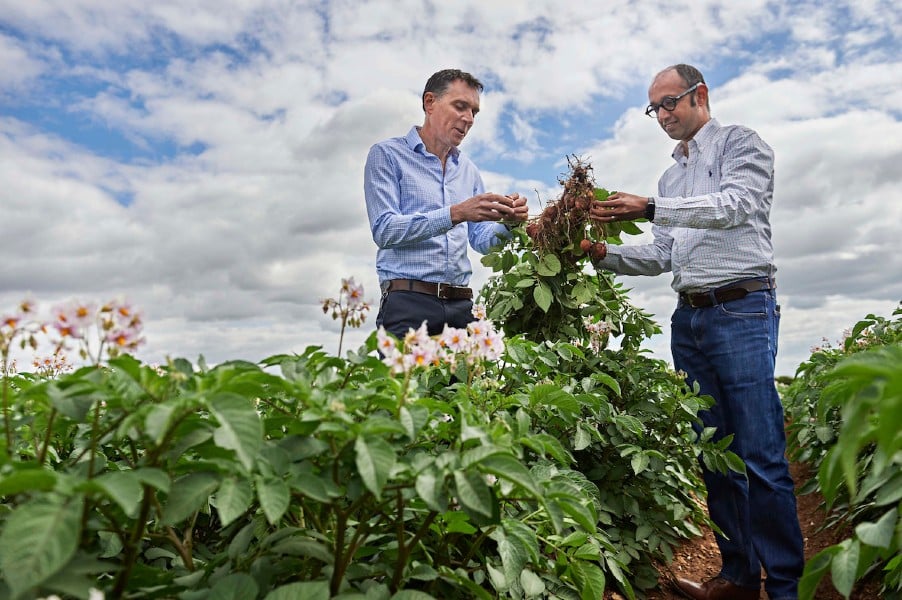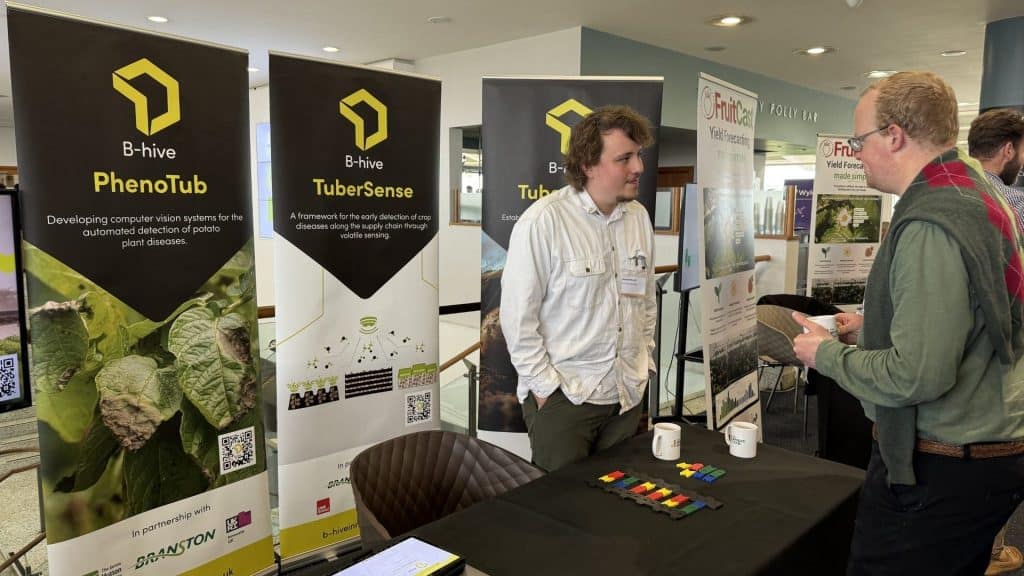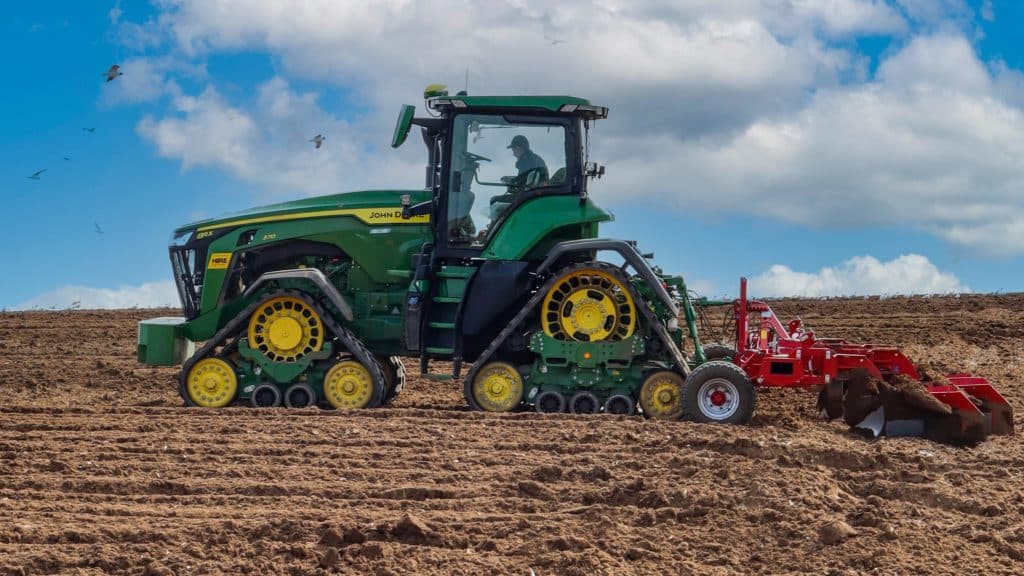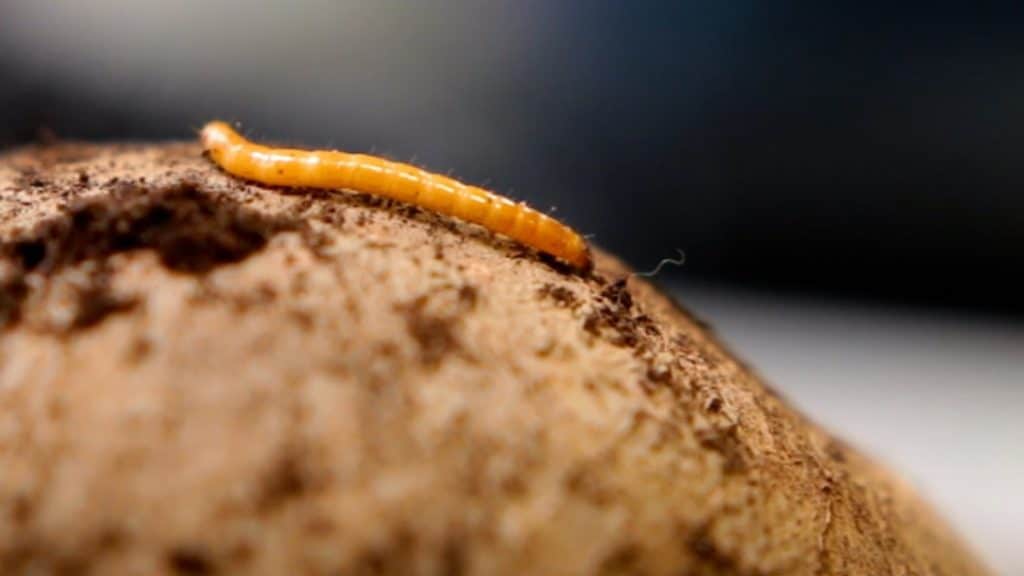
Net zero field, storage and transport: B-hive secure £2 million investment funding
- Company News
- In the press
LEADING UK fresh produce innovators have successfully won major funding towards collaborative research to sustainably change the way that potatoes are grown, stored and transported.

The Net Zero Hectare project is led by the nation’s leading potato supplier Branston in partnership with B-hive Innovations, Crop Systems Ltd, The University of Lincoln, David Armstrong Farms, and Arbikie Distillery.
Together, the partnership has secured £2.06 million in funding acquired from The Farming Innovation Programme, run by the Department for Environment, Food and Rural Affairs (DEFRA) in cooperation with UK Research and Innovation (UKRI). The objective of the project is to investigate new methods to contribute towards a net zero carbon supply chain for potato crop.
The three-year project will work with industry experts in each area, this collaboration will look to tackle the three key areas of emissions in growing ware potato crops: fertiliser, storage, and transport.
Vidyanath (Vee) Gururajan, managing director of B-hive Innovations said: “We’re delighted to have been awarded this funding to support our aim of net zero. Pulling different technologies to solve real world problems is at the heart of what we do at B-hive Innovations.”
Collaborating with the University of Lincoln, the project is trialling innovative new approaches to growing potatoes. The project aims to demonstrate how improved crop regimes, such as reduced use of tillage, affect soil composition and in turn crop resilience on a much large scale than previously tested.
Dr Sandra Varga and Dr Iain Gould, lead researchers on the project for the University of Lincoln, said: “This is a unique opportunity to try something that farmers usually are unable to trial due to capacity and cost limitations. The advances that it could bring will significantly transform the farming industry for the future.”
Extensive research will also be undertaken to understand how more organically derived, lower carbon fertiliser made using by-products from the potato peeling process can impact crop yield. This aims to release 80% fewer kilograms of carbon dioxide equivalent per hectare than industry-standard synthetic fertilisers.
David Armstrong, a Lincolnshire-based farmer who will be trialling the field research said: “We are very excited to be part of such a forward-thinking project. Reducing our on-farm carbon emissions is essential for the future of our planet, therefore being involved in a project like this from the start gives us the chance to make a real difference.”
John Stirling, farmer and owner of Arbikie Distillery in Montrose, said: “We are delighted to be involved in such an innovative and potentially important project. As one of the most sustainable distilleries in the world, it is vitally important for us to look at all aspects of our carbon emissions and how we can make things better. This project gives us the opportunity to challenge some conventional thinking across all scopes and look to improve our carbon footprint substantially.”
Crop storage technology firm Crop Systems Ltd is also part of the consortium to innovate store design to keep stored crops in optimum condition while minimising energy usage and environmental impact.
The firm is also looking at how to improve crop transport. Pre-conditioning potatoes ready for retail during transport is another area being advanced by the investment, which will reduce the needed storage time in warehouses. Crop Systems is looking to develop an in-transit low-energy thermal system to maintain the optimum temperature of potatoes to avoid bruising.
Ray Andrews, managing director at Crop Systems, said: “We are proud to be involved in this important project and can’t wait to impart our potato storage knowledge and experience, helping to work towards a net-zero supply chain.”
Mark Willcox, technical director at Branston, said: “This funding marks a significant milestone in the collaboration between Branston and B-hive and we’re incredibly excited to continue to share knowledge and innovate potato production, storage and transport.
“The project is sure to step-change the entire potato industry and leads the opportunity for dramatic change across the whole supply chain.”
Latest news

B-hive Innovations at the REAP Conference 2024: Driving Agri-Tech Innovation Forward
B-hive Innovations attended the REAP Conference 2024, joining agri-tech leaders to explore cutting-edge advancements in sustainable agriculture. The event provided valuable insights into AI integration, collaborative partnerships, and innovative technologies, aligning with B-hive’s mission to deliver impactful solutions for the agricultural industry. Key discussions and networking opportunities are set to drive forward projects like TuberNetZero and PHENO-TUB while opening doors for exciting collaborations.

Intelligence-Led Planning Key To Maximising Yield
AS INNOVATION in the agritech sector continues to move on at breakneck speed, the challenge for growers and farmers is often not that the technology to help them isn’t available, but that they can’t settle on an approach to take. Technology is developing at such a rapid rate that it is a challenge to stay ahead of the curve, with new technologies bringing in new approaches to planning, growing, and harvesting.

All You Need To Know About Wireworm
A wireworm infestation can devastate agricultural crops with potatoes being particularly at risk. Wireworm numbers have been increasing for years – join B-hive’s local expert, Rebekah Neill, to find out all about wireworms – what they are, why they are such a problem and our armoury of tools to combat them.